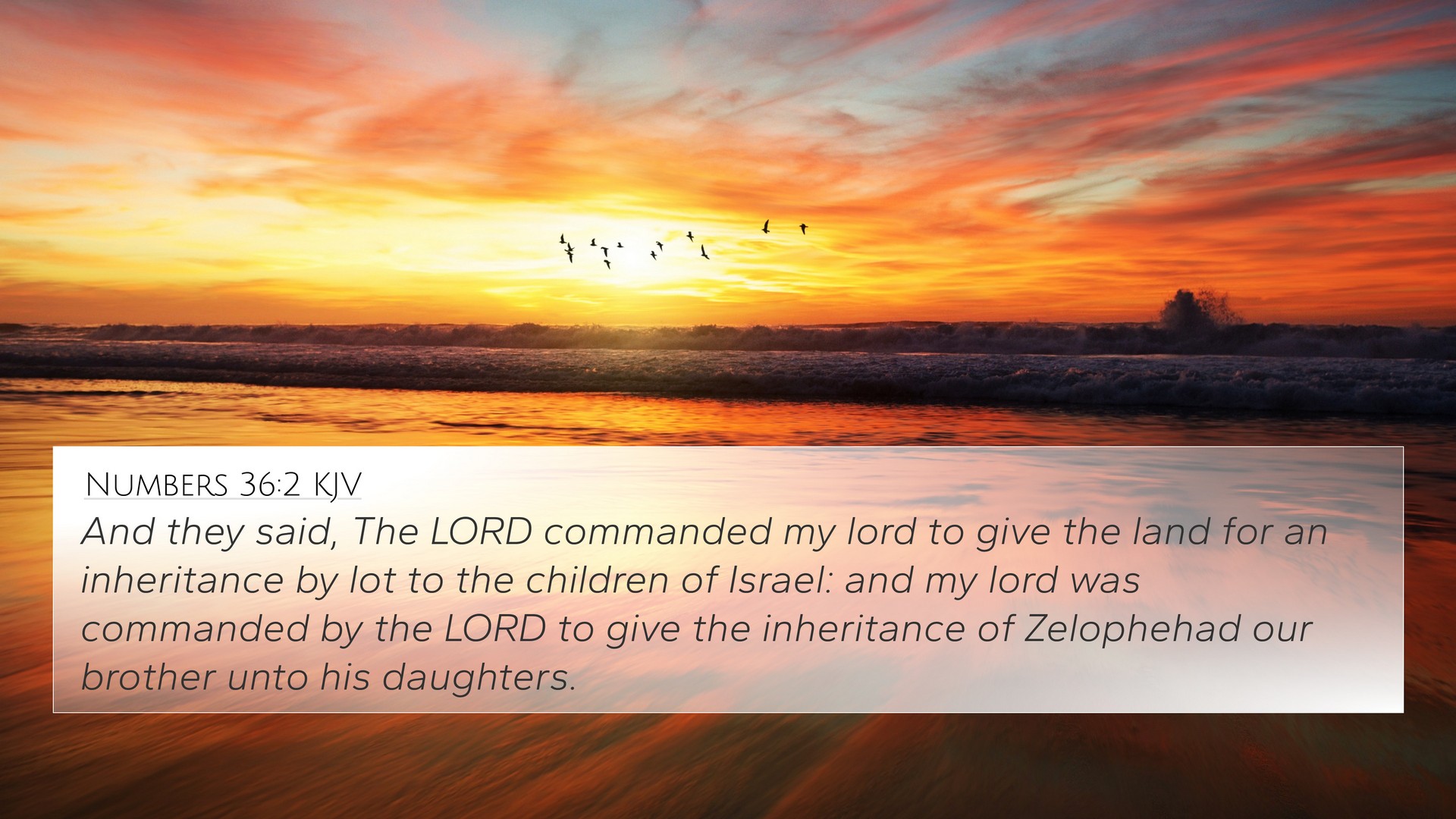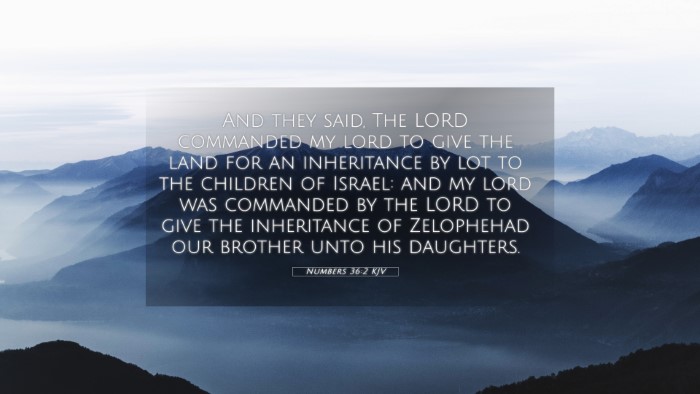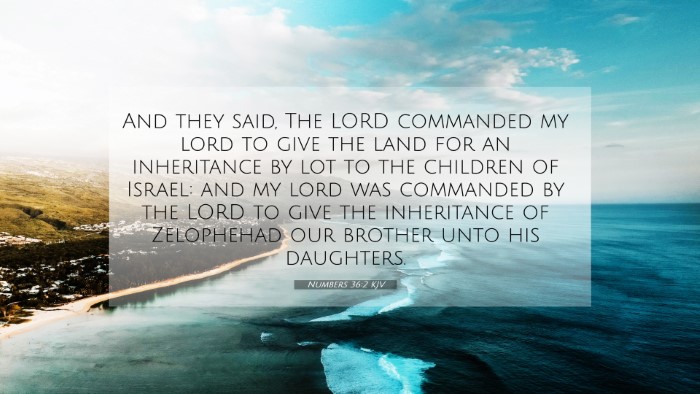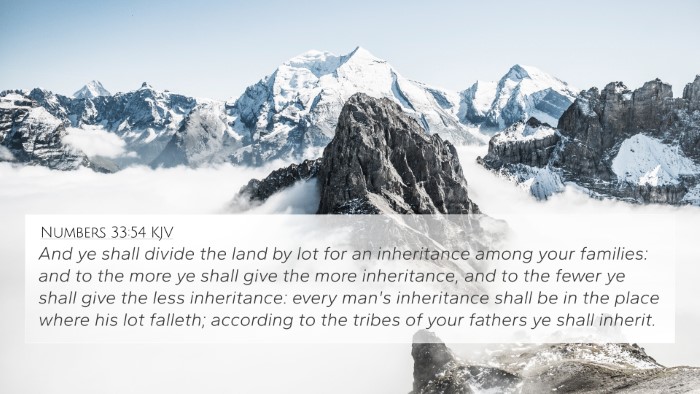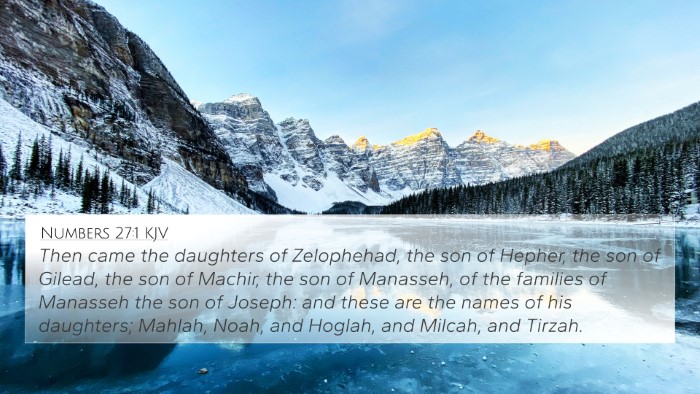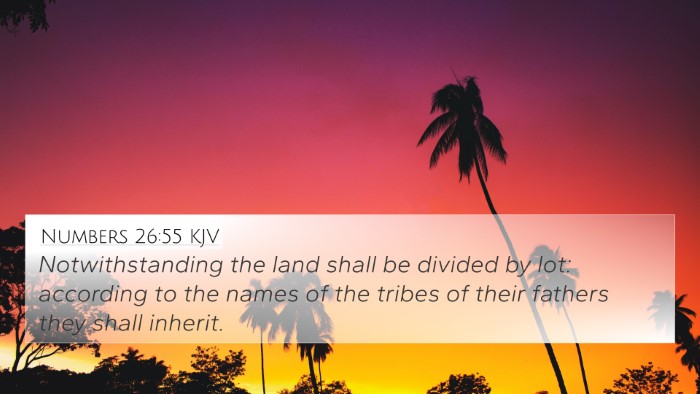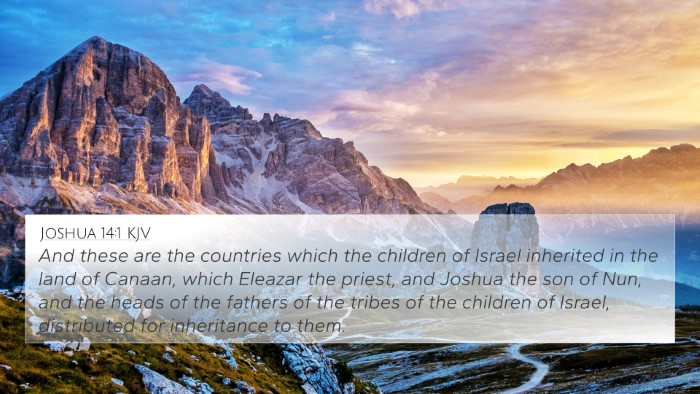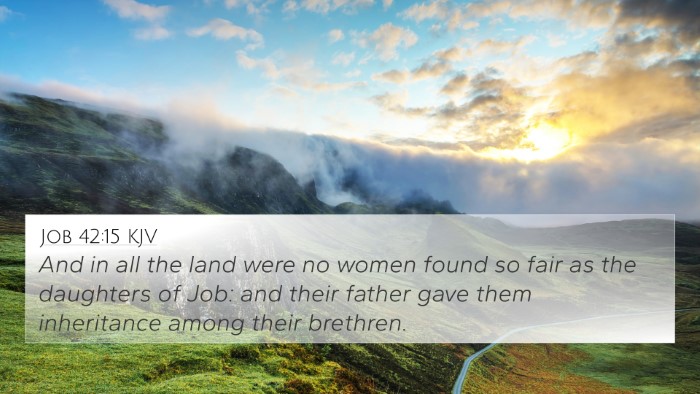Understanding Numbers 36:2
In Numbers 36:2, we encounter a critical discussion involving the inheritance laws of the Israelites. This verse states:
"And they said, The Lord commanded my lord to give the land for an inheritance by lot to the children of Israel; and my lord was commanded by the Lord to give the inheritance of our brother Zelophehad to his daughters." (Numbers 36:2, KJV)
This verse highlights the importance of adherence to God's commands in matters of land inheritance, particularly as it relates to Zelophehad's daughters. The significance of this scripture flows into a deeper understanding of God's laws regarding inheritance, gender roles, and the preservation of family lineage within Israel.
Key Themes and Explanations
- Inheritance Rights: This verse emphasizes the divine instructions given regarding the allotment of land. The daughters of Zelophehad are mentioned as deserving heirs, demonstrating God’s provision for women in a patriarchal society.
- God's Authority: The reference to "my lord" acknowledges the leaders tasked with adhering to God's commandments. This reveals the relational dynamics between God, earthly leaders, and the people of Israel.
- Divine Command: The acknowledgment that these instructions come from God Himself signifies the importance of following divine direction as central to societal order and justice.
- Legal and Moral Framework: By clarifying the inheritance laws, this verse contributes to the broader legal and moral framework seen throughout the Mosaic Law.
Cross-References for Numbers 36:2
Several other scriptures provide insights that connect to Numbers 36:2, enhancing its understanding through biblical parallels:
- Numbers 27:1-11: Discusses the daughters of Zelophehad, presenting the initial case for their inheritance rights.
- Deuteronomy 21:15-17: Illustrates the rules concerning inheritance among children, reinforcing the principles of fairness in familial succession.
- Joshua 17:3-4: Results in the allocation of land to the daughters of Zelophehad, confirming their rightful inheritance as instructed by God.
- Matthew 22:29-30: Jesus discusses the resurrection, referring to God as the God of the living, affirming life beyond earthly inheritance.
- Galatians 3:28: Highlights equality in Christ, which can be linked to the fairness represented in the inheritance law for women.
- Proverbs 31:10-31: Speaks to the worth of a virtuous woman, suggesting the value placed on women within biblical texts.
- 1 Peter 3:7: Advises husbands to honor their wives, further promoting the dignity and respect due to women.
Linking Biblical Texts
The thematic connections between these verses showcase the overarching principles of justice, inheritance, and God’s consideration for women in His laws. Each of these references complements the message found in Numbers 36:2, creating an intricate web of scriptural cross-referencing.
For those conducting cross-reference Bible studies, understanding how these verses relate can illuminate broader themes within the Scriptures, such as:
- Gender Equality in Inheritance: The unfolding story of the daughters of Zelophehad signifies a shift in perception regarding women's rights and roles.
- Zelophehad's Legacy: This focus on familial legacy and divine justice radiates throughout various texts, linking audiences to God's unwavering support of His people.
Tools for Bible Cross-Referencing
To dive deeper into the cross-referencing process, consider utilizing a Bible concordance, which aids in finding connections through themes or keywords. Additionally, Bible reference resources can enhance your study by providing context and commentary on various texts.
Comparative Bible Verse Analysis
Engaging in a comparative study of the Gospels or other scriptural books can highlight similarities and divergences in views regarding inheritance and God's law. This comprehensive approach will enrich your understanding, revealing how inter-Biblical dialogue functions to provide coherence throughout Biblical narratives.
Conclusion
In summary, Numbers 36:2 brings forth vital themes of inheritance, justice, and God's command about gender roles within Israelite law. By employing methods of cross-referencing and exploring related scriptures, readers can develop a more profound and nuanced understanding of this verse and its implications across the Biblical canon.
